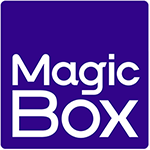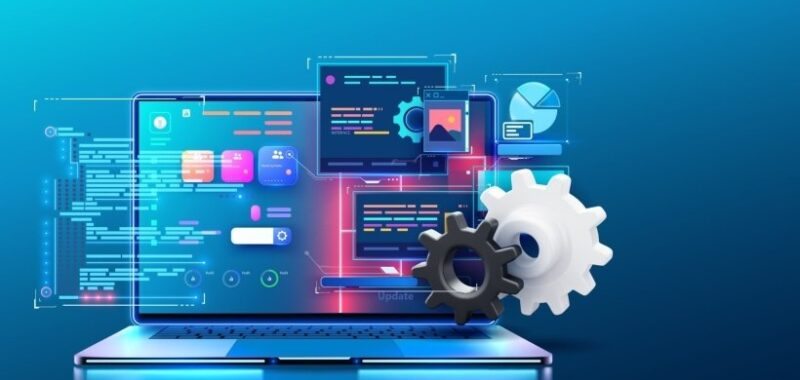From Textbooks To Interactive Learning Journeys
How come 5-year-old Jake can barely count from 1 to 30, while Jenny, of the same age, can count up to 50, and even distinguish between odd and even numbers? Well, the difference lies in the way they experience learning. While Jake reads from a digitized traditional textbook, Jenny is actively involved in learning with numbers dressed in her favorite colors that sing with her.
K-12 education has come a long way from static printed books to interactive eBooks and from visiting the A/V room to watch a short film to multiple interactive elements embedded in each module. There has been a tectonic shift from static one-size-fits-all lessons to dynamic, personalized, and experiential learning paths. One of the major reasons the game-based learning market is forecasted to grow at a strong CAGR of 15.8% between 2024 and 2032 to reach $71.7 billion is that it engages learners. This also means that there is still more ground to explore for K-12 publishers. A massive one!
As much as digitalization and globalization have improved content authoring speed and capacity, they have also raised user expectations. Users want on-demand, localized content with student-centered learning journeys and seamless, inclusive, anytime, anywhere access. Your educational materials must check all the boxes. This is why you need a comprehensive digital content authoring and distribution platform.
Digital Pedagogy Redefines Education
Digital learning tools and content formats evolve with innovative technologies. The radical restructuring of learning experiences in the digital space has significantly affected pedagogy.
Diving Into Digital Pedagogy
Digital pedagogy involves 24/7 access to multimedia learning content to deliver student-centered learning experiences. This can be done via personalized digital content distribution that enables learning at the student’s pace, knowledge and skill levels. Instant evaluation and feedback with immediate remediation are considered a given.
Advanced content authoring tools embedded with intelligent technologies enable the creation of smart content. Modular instructional content delivers learning according to students’ preferences discovered by monitoring individual behaviors, assessing regional patterns, and benchmarking them against global standards. With the rising of AI, what differentiates K-12 publishers from one another is the diversity of learning needs their content can fulfill without burdening administrators or educators. This requires elevating your digital assets, refining student journeys, and transforming digital content distribution.
Ways To Elevate Digital Assets: Using A Digital Content Platform
It is time to think beyond creating eBooks that allow bookmarking and highlighting content. These are taken for granted now in the digital space. Engaging students with learning requires making it enjoyable and motivating at the same time.
Embedding interactive content with gamified elements, such as eBooks, quizzes, AI learning assistants, and more, can keep students engaged. AI learning assistants can even provide hints to solve problems, encourage students to try one more time, and answer their queries to maintain learning continuity. Simulated virtual experiences with relatable content are a great way to boost engagement.
A prerequisite for delivering personalized learning is creating modular learning materials. These materials can be assigned according to individual needs and ordered as per students’ unique journeys. Modularization also lowers the time needed to search for and revisit a concept, as needed.
Developing Student-Centric Learning Pathways
Did you know that delivering personalized education begins with assessing regional and institution-level education structures and programs? This is because an understanding of the kind of learning that has shaped students and their current education levels is critical to forging paths to achieve their learning goals. This can be challenging for a K-12 publisher. You need access to industry and regional intelligence and data, along with advanced analytics, to identify the necessary areas to localize the content. Once that is done, you can leverage individual data to create unique learning paths. Or better yet, utilize advanced technological tools to do that dynamically as students’ learning needs, levels, and preferences evolve.
Reinventing Digital Content Distribution
A key aspect in enhancing adoption for K-12 publishers is rethinking distribution. Innovative digital content distribution techniques enable:
- Creation of unique learning paths.
- Aligning content formats to student needs.
- Instilling dynamism in instruction and assessment delivery.
Digital content distribution tools automate the assignment of course material and assignments according to individual learning journeys and target outcomes. Advanced DRM systems also manage subscriptions and permission expiries to ease the workload of teachers and administrators.
Digital content distribution must evolve with technology-infused pedagogies and regional/global learning standards. This includes automating compliance with the changing regulatory landscape as manually doing so at scale and within deadlines is highly effort-intensive.
Build Strategic Partnerships For Success
A state-of-the-art digital content distribution platform offers a smarter and more secure way of delivering learning content. The platform should include a built-in eReader equipped with a range of features designed for inclusivity and accessibility, such as captioned audio-visuals, downloadable lessons, customizable interfaces, and intuitive search and navigation systems. Features like clickable hotspots can help students access supplementary resources easily, enhancing their learning journey. Collaborating with the right digital platform can elevate your content creation, distribution, and maintenance processes, ensuring a seamless and effective learning experience for all students.

MagicBox
MagicBox™ is an award-winning, digital learning platform for K-12, higher education and enterprise publishing. Publishers, authors and content creators can use it to create, distribute and manage rich, interactive content.

